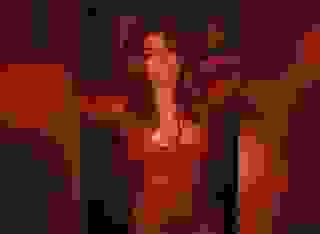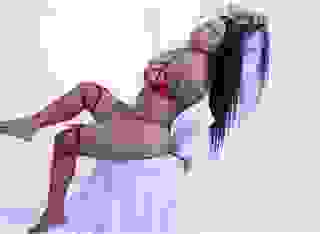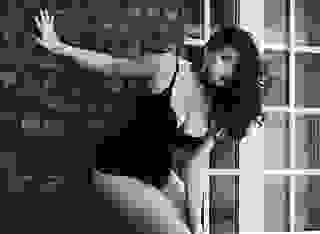Note: You can change font size, font face, and turn on dark mode by clicking the "A" icon tab in the Story Info Box.
You can temporarily switch back to a Classic Literotica® experience during our ongoing public Beta testing. Please consider leaving feedback on issues you experience or suggest improvements.
Click hereSince she collected me at the City of London's Smooth Field yesterday morning and our ride down to the north bank of the river, Lady Elinor has allowed me my space and has mostly avoided me where she is able. Even on the ride down from the northern shore of Kent onto Canterbury we rarely exchanged words, the conversation mainly revolving around our guide, Swein. On the way back to the ship, I had ridden next to Hugh, behind Alwen and the Lady, who were in turn behind Swein and Will leading the way, with Father Andrew happily bringing up the rear with the spare horse.
Now that we are under sail, the Lady avoids me once more as I think she senses the tension laying between us like an unscaleable wall, one that wasn't there during our previous adventure those years ago.
Then she sold me a pretend tale in which I was to believe she was a maid who had just that day taken the place of her Lady in an arranged wedding between strangers, so that her Lady could run off with her lover. All lies, I found out later, but I was innocence of even the existence of such gross fabrications in those days.
Then I allowed my heart to fill itself with her essence, as we seemed to act so comfortable together, allowing hopes to develop that I mused of a shared future, only to be dashed as she confessed that she was indeed a daughter of a king and long happily-married to a nobleman, the very Count Gervaise the Short that we had up to then believed to be a villain. No, the truth was soon out that they were both in league with her father to unearth a plot by those who sought to claim his throne and at the same time test the loyalty to the English Crown of my Welch-born father.
And I never ever trusted that husband of hers, to me Count Gervaise was a weasel that I would avoid all contact with, whatever his relationship with the girl I admired most of womanhood. The thought of the Count once more brought back the vision of me shooting him through the bare buttocks, one of my best ever shots, creating four wounds with one arrow! He may have won the Lady and wounded my heart, but I had in turn and wounded and permanently scarred the cheeks of his arse!
Aboard, I see the Lady in my peripheral vision all the time. How can we avoid each other on such a tiny ship?
She converses with Alwen now, sharing the kindred-ship of the same sex and the commonality of running households and estates for their oft absent husbands going about their appointed duties. The Lady is no doubt gaining insights of combining business with bearing and caring for a brood of human chicks, that I assume the Lady will one day enjoy with her husband, if he is ever to be released by his captors and returned to her warm bosom. It is possible that his capture and incarceration until some Count's ransom yet to be agreed is paid, has perhaps strengthened her resolve to start her family sooner now rather than later.
From time to time, even while my attention is taken by other ships on the river and looking out for the possibility of another Royal Naval pursuit, their shared feminine laughter interrupts my thoughts and my heart yearns to hear her laugh as often as it can bear to listen, while making my heart weep at the same time.
By the time we reach the sea at the end of the estuary, where the meeting of river current and the sea meet, twilight is falling and the little flat-bottomed ship is tossed around like a feather in the water.
Alwen, who has never sailed before, is suddenly taken ill with seasickness when we reach that point in the Estuary where the sweet warm river meets cold salty sea. My father Will, who was conversing with me about how we would approach the Red Hand when we goes there, instantly leaves my side and takes care of his beloved wife until she is over her sickness and her equilibrium is restored, it seems purely by the power of his love for her and the warm comfort of his calming voice. By now twilight hath come and past and we are into the full darkness of the night, with only the brilliant stars for company and the three-quarter-moonrise to look forward to around the middle of the night.
We sail on through the night, deep at sea with no known rocks and dangerous sands well documented by experience Channel sailors. Wulfstan and Swein navigate by the stars in the sky as sailors have for as long as man has ventured to ride the ocean waves and find ports to frame in, new lands to farm, or to conquer. We have simpler tasks in mind, to find an old friend, to seek help to find the husband of one who is a friend, by dint of her aid in rescuing Alwen from death four years earlier, and our common friend, Rebecca the Jewish banker who, to the Archer family at least, is loved and respected and missed by us beyond all reason.
Chapter 5
Brugge and Flanders
We sail into the bustling port of Brugge, a truly world-wide trading centre, with ships hailing from the north and south, and beyond whence from the Baltic, Mediterranean and coast of Africa, bringing in pickled fish, spices and foods from the known and unknown world. Sometime I think I would like to be an explorer, finding new lands, discovering new creatures or new strains of woods for making bows or arrows. Anywhere in the world where I would no longer be tortured by constant reminders of the Lady Elinor.
There was no need to move the horses from the ship this time, always a fraught time as horses are not natural sailors. Where Rebecca's Red Hand bank is to be found is but a short walk from the busy docks and noisy wharves. A merchant bank is necessary for any trade and the bank necessarily needs to be close to the port where cargos are offloaded and sold by subscription or bids at auction.
But we discover that Rebecca's bank is not at all to be found where it once was, as Lady Elinor foretold. It is still as fine a building, if not finer, than all the buildings in the long street of traders' stalls, but the bank is now occupied by a ships' chandlers, selling rope and canvas judging from the coils and stacks outside. Useful for our Captain Wulfstan and his partner Swein, but we had left them at the dock preparing to sell their cargo of sheepskins to the merchants that supply the reknown Fleming weavers of Flanders.
We are here in hope that we will be able to pick up the trail of the abducted or absent Rebecca, but the present proprietor, the chandler, swears to us that he knows nothing of the building's antecedents.
Both my father and Father Andrew have some knowledge of the Fleming tongue of these lowlands and they closely question the chandler.
"The shop was completely empty," the chandler declares, as Father Andrew confirms his word to us in English. "Not a shelf remained, everything was gutted and the floors swept clean of any gold dust the chandler fancied might litter a typical bank's flooring."
The chandler says that he moved in over four months ago, and pays his rent monthly and in advance to an agent in the town, based in a parallel street of this one, a grand house well away from the bustle of the docks. Will says that is where we should go for next, to see if they have any word of Rebecca. "I wonder," he whispers to me as we exit the doors onto the street, "if Rebecca packed everything up before she left or if the landlords simply stripped the place in lieu of any outstanding rent."
We descend the three stone steps down to the paved street and turn around to help our two ladies down those very steps. Behind the Ladies Hugh and Father Andrew are just emerging from the Chandler's doors. It was Father Andrew who called out first.
"Will! Robin! Behind you!" cries Father Andrew in warning, "Come, ladies, come up behind us and return to the shop!"
As we turn towards the street, Will and I can see a group of six men charging towards us with staffs and cudgels raised, ready to strike us down. I have no bow, after all, this is a crowded and civilised town, where a respectable party of men, women and a priest do not expect to be attacked openly in one of the town's main streets. I bear only a short dagger, as doth Hugh. Father Andrew has his staff, while Will has his broad sword strapped to his hip, which he is entitled to wear as an English Knight of the rank of Shire Reeve.
As the ruffians with cudgels charge towards us outside the former bank building, Father Andrew joins us by stepping ahead of the two Ladies. Father Andrew lets fly with his staff and aims it at a man's face holding his own cudgel above his head; Father Andrew continues his forward impetus by stepping forward and the assailant cannot stop or lower his arms, and runs into the polished head of the staff, which crushes his nose before fracturing his cheek bone. The man shrieks in agony and his legs give way beneath him and all thought of striking a blow with his elevated club completely forgotten. Will's sword is drawn by now and on the right hand side of the group he slaps another ruffian across the head with the flat of his blade and, continuing his swing, he slashes the leading charger's cheek with the tip of his sword, opening up the skin through to the bone from ear to chin.
I draw my dagger, although the opponent immediately ahead of me has been taken out of the fight by Father Andrew and is writhing on the ground in front of me, holding his ruined face in both his hands.
I look to match my dagger against the attacker who was behind him. His headlong attack is checked by his friend on the floor in front of him. He checks his run and his eyes I see are focused on his friend not me. So I bend my knees, drop low and throw myself forward with my dagger pointed out before me and I thrust my blade into the undefended stomach of the attacker in front of me, just below the ribs. The point penetrates his leather jerkin and my impetus forces the blade into the top of his stomach just under the ribs, the blade buries itself up to the hilt and I continue pushing with my legs. I push the attacker back and down as he loses his balance, effectively pulling me down with him. I put out my right foot into the lower part of his stomach and kick him away while pulling on my dagger and extracting it out of his body. The man falls away and I put down my foot back on the ground and fight to maintain my balance, while looking for the next threat to combat.
I see there are two men left astanding. The first one is squaring up to Father Andrew, who holds his staff at the ready, while the ruffian facing him appears to be reconsidering his situation, outreached and slight of adequate weapon and fighting skill, which is then rendered lost as Will holds his sword tip under the chin of the sixth man, while gripping the man's belt so he can't escape the threatening blade.
"Who's your leader?" Will hisses in the Fleming tongue at the man he holds. The man points at the one lying on the floor that I have just gutted like a millpond chubb. He lies still on the white paving stones, he is not dead yet, but it looks like my dagger has holed his lung as blood is running down his cheek from the bloody bubbles of air coming out of his mouth and nose as he breathes his last few breaths, drowning in his own blood.
"Who sent you?" Will addresses the sixth man, realising that no answers were ever likely coming from the dying leader.
"I know not my Lord, our paymaster never showed himself to me, nor any of the others among us except Stevin. We were only told that a larger purse was to be earned if the young man there," he was pointing to me, "was ... was not fit to continue his journey, and we were told expressly that we were not to harm nor mishandle the Lady."
"The Lady? You were expecting only one Lady?"
"Aye, Sire. We were told to expect one English Lady, one young man her lover, the one we were to maim, and four other men, guards who were likely dressed like clerics. Stevin was uncertain at first if ye were who we sought, when thee first arrived, thrown into confusion by being two Ladies, three men and the old priest. He decided the numbers were right and we heard you was speaking English, which confirmed it. The last thing he said, before we lined ready for you as you emerged from the shop, was that one of the Ladies might possibly be a young cleric in disguise."
Hugh and I gather up the clubs that litter the street, noticing that the ships' chandler has closed and locked his doors behind us and many passers-by have stopped to watch, with others disgorging from the other shops up the street and from the inn on the corner as word of mouth of the conflagration spreads.
All this has happened in just a couple of minutes, but a crowd was gathering and it would not be long before soldiers from the local castle will turn up and likely arrest us as strangers to the town and therefor,guilty of affray, even murder.
"Come, all of you," my father Will hisses quietly, "we can learn little here, let us away, without saying where we be heading, before the soldiers seek us out and hamper our search for our dear friend."
"I'll divert their attention," Father Andrew says, "while you slip away. I know where the land agent is, and I'll catch up with thee there." He walks into the middle of the street and bangs his staff onto the paving to draw attention to himself, then begins a Latin eulogy for the dead, dying and injured, repeating it by translation into the Fleming tongue. Most folk stop still, bow heads and press hands together in prayer.
We slip away through the crowd and make our way to the end of the street to a crossroads leading down to the port or uphill the other way. Once Will has checked that the five of us were together, we walk away from the waterside and head uphill past a couple of street corners until we get to the thoroughfare we want.
These buildings were not shops, but town houses, mostly tall, narrow, three-tiered residences, with stout timber frames and most were cob or lime plaster over laths or wattle infill, some tile hung, but the better ones had herringbone brick infill, and the house we sought was bigger and wider than the rest, has "Land Maatchappij" carved into a wooden sign hanging out front. However the wood door was protected by a gate of vertical iron rods welded to an iron box frame, and protected by a huge lock on the right side and three hinges on the left. The hinges were secured by being on the inside edge of the iron frame and the screws holding them only accessible when the gate was fully open.
While we considered the gate, Father Andrew caught us up and without ado poked his staff through the bars and bangs on the door, three sharp raps. We wait, and I fancy I see a flicker of movement at one of the middle windows, but no-one comes to answer the door.
"Robin, take Hugh round the back and check if any occupants take flight. Do not take them on until you know they are involved in any prosecution of our dear friend Rebecca. Be careful both of you."
"Aye, Father," I say as I take the first steps away.
Hugh says, "Wait! I can open this lock, methinks."
"Without a key?" Will asks.
"If there is no key then yes, it looks at first sight but a simple mechanism. My old smithy master was town-based once and had an interest in making and opening locks, but had little need for such skills in Oaklea. I have made a couple of locks before at the forge, one for my toolbox at the smithy. Let me try and open this one."
Hugh steps up and looks closely at it, then inserts his slim dagger into the keyhole and immediately we hear a faint click. But this is only a single element to the lock, clearly there are more barriers to our entry. He inserts his dagger tip again and, with a deft movement releases another click as another part of the lock falls under his ministrations. Now he pulls a tied linen bag from his purse and unravels the winding bindings until he can reach into the bag and extract a slim bodkin, which he inserts into the lock at an angle and, with a flick of the wrist, releases the final barrier in the lock and the gate swings open silently outward on well-oiled hinges, and we were almost in.
Hugh does the same to the door lock with his slim bodkin, and finds this one had but two stages, which are swiftly dealt with and we enter inside the house.
We find the land agent sitting in his office, squinting through a smooth lump of polished glass held in one hand while following figures with fingers of his other hand to follow columns of figures that he is reading on a piece of vellum. He is less surprised by our arrival than we would have expected, but he doesn't seem threatened, nor does he attempt to threaten us in return. He puts down the glass, uses his left index finger to show where he had got to, and marked his place using a thin line charcoaled in the margin.
"You come earlier than expected, Sir William," the man declares in clear English, as if it is his natural tongue, as he stands up from his table.
My father stops and, although I cannot see as I am a little behind his arm, I am sure my father raises an eyebrow at the unexpected personal greeting.
"You expect us, sir?" my father asks, "I ask because the ruffians who just attacked us in front of the Red Hand were also expecting us from England."
"Then I apologise, Sir William, were we expecting trouble in that area we would have arranged for an escort from your ship. We thought wrongly that we were the only ones here aparty to your plans and intended destination. I hope no one among your party is hurt?" The man runs his eye over us all as he spake, his face registering pain as though hurt himself.
"No, we are unharmed, though our attackers did not fare quite so well."
"Excellent, your continual capacity to disarm danger is a delight to all who follow your welfare with interest. Now the person you seek is my mother, she walks to the fish market daily, not just for the freshness of the fish, and the exercise of the walk, but she picks up a lot of business in the docks. She'll be back sooner than usual once she hears you've arrived. Goodness, you only left Canterbury yesterday."
"We were lucky with the timing of the tides," my father answers. "But your information is clearly carried upon the same winds."
"Indeed," he smiles, "Rebecca's messengers do sometimes fail, due to weather or mishappenstance, but in the main our investment in bird keepers and birds has proved quite invaluable over the years."
"So Rebecca is reachable, is she?"
"Aye, but I would not wish to deprive my mother of any reassurances she has to say on the matter. Now, if you will allow me to pick up my bell I will summon a maid to fetch drinks, perhaps breakfast if you have not yet broken your fast."
My father nodded, so the man, a middle age man with sparse hair and pale skin from too little air, picked up a small bell and rang it. He smiles at us all, "I admit to being a poor sailor and rarely eat whenever I make the channel crossing, but am oft left ravenous once my land legs return to my full command."
Almost immediately a timid girl appears at the doorway and squeezes past the massive Father Andrew.
"Monseur?" she asks.
"Ah, Maria," our host greets her in a strangled French accent, "can you tell the Cook that our guests have arrived a tide earlier than expected and require breakfast, and ask Jacques to open up the rear dining room for us. Then can you send someone to the fish market and fetch Madam Catherine here directly?"
The girl nods, curtsies and hurries off to all her master's bidding.
"We will give them a minute or two to gather together some cheese, cuts of meat and fruit, of which we have plenty this harvest time, and then I will lead you down to the dining room. It is at the back of the house and points south-eastwards, so we usually keep the windows shuttered in the mornings so it is cool for us to dine in the evening, but on an early morning like this in late summer, it should be comfortable for an hour or so, with chairs enough for all to take the weight off. Here in my office I rarely entertain company and have but chairs enough for two."








